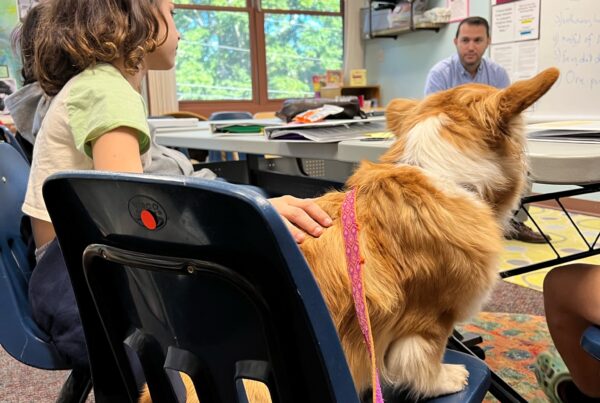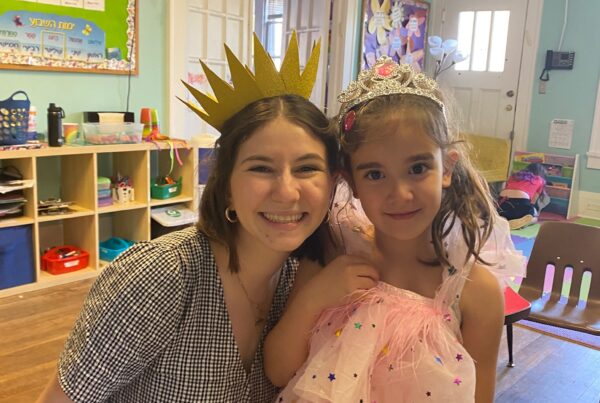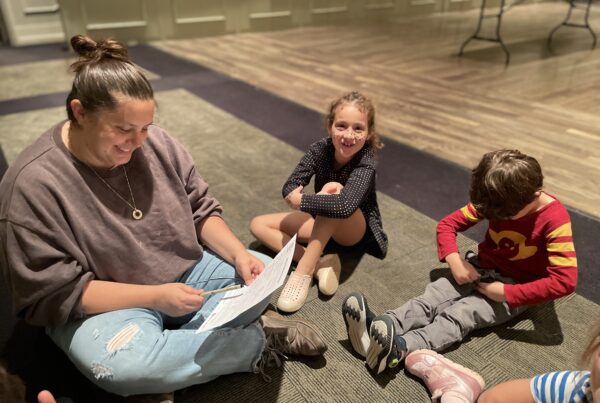 By Rabbi Elana Perry, Director Jewish Education Collaborative
By Rabbi Elana Perry, Director Jewish Education Collaborative
“You can’t teach an old dog new tricks,” they say. Many people in the Jewish community think of part-time Jewish education as the “old dog,” imagining that today’s children are enduring the same rote lessons in Hebrew School that they remember from childhood. In reality, supplemental Jewish education has been changing rapidly, even before Covid-19 turned the world upside down. And it is because of the unprecedented ability of our educational leaders to pivot and innovate, that part-time Jewish education will grow and thrive in the months and years to come.
The ability maintain connections, has been key. And while some people may be skeptical about what can be accomplished from a distance, Atlanta’s Jewish educators are proving that anything is possible. In the face of the global pandemic, religious schools throughout metro Atlanta transitioned quickly to online platforms like Zoom to deliver engaging and interactive virtual learning. As Temple Emanu-El’s Diamond Family Religious School Director Beth Blick says, “From Kahoot! and YouTube to BimBam and [online] “field trips,” our students have continued to learn with a larger focus on staying connected to their community.”
At Congregation Etz Chaim, faculty members created their own online videos and have met in small groups and with individual students to keep them engaged with Hebrew, while utilizing additional online games for interactive learning. Congregation Bet Haverim hosts Netflix watch parties featuring Jewish-themed films with older students and provides fun weekly “mitzvah bingo cards” for kids to complete with their families.
Jewish Kids Groups created JKG at Home, broadcasting on Facebook Live every weekday afternoon. Favorite sessions have included interactive Jewish Art and Hebrew Yoga online. Some families have enjoyed the experiences live, while others access the recorded content at a time that works best for them.
Students in Temple Sinai’s Noar Sunday program celebrated Yom Ha’Atzmaut, Israel Independence Day, by choosing real-time interactive electives such as Israeli Army training, pita-baking, or maker-space technology. And Congregation Beth Shalom has used Zoom to make sure to keep students connected to their beloved Shishin, Yael, dialing in from across the world.
Congregation Or Hadash scrapped their curriculum entirely and shifted to a “gym-like” schedule, offering live subject-based classes, allowing families to self-select how and when they participate. “Our main goals,” said Director of Education Rachel Herman, “are to offer flexibility for our families, to stay connected with one another and to foster community.”
“I can jump into a Zoom classroom and immediately see the joy on the kids’ faces in seeing their TBT friends,” says Temple Beth Tikvah Religious School Director Suzanne Hurwitz. “It’s reassuring that we are able to remain connected and productive in these times.”
Jewish tradition teaches us: “One should always be flexible like a reed, and not hardened like a cedar tree. For the reed, when the winds blow, moves with the wind... But the cedar tree, when the strong southern wind blows, is uprooted and turned on its head…” (Avot D’Rabbi Natan, 41). Atlanta’s Jewish supplemental education leaders – directors, teachers, clergy, and more – have embraced the role of the reed. They have moved swiftly as demanded by this moment in time, demonstrating flexibility and creativity to support and enrich Jewish families during an incredibly challenging period. And while nobody has a crystal ball to say what the future will hold, whether our children can learn in-person or from a distance, it is because of the unprecedented ability of our leaders to pivot and innovate, that part-time Jewish education will grow and thrive in the months and years to come.





